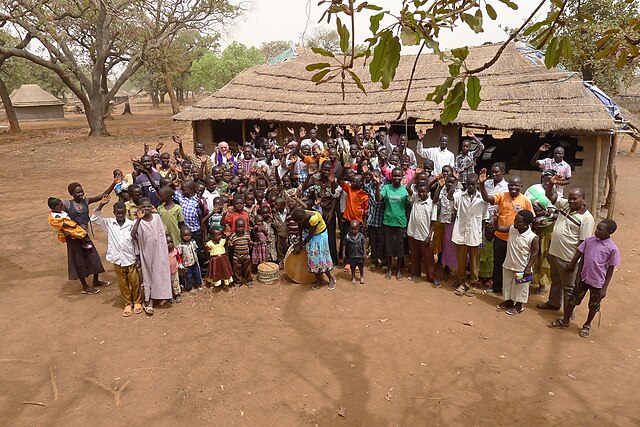A church is a religious organization or congregation that meets in a particular location. Many are formally organized, with constitutions and by-laws, maintain offices, are served by clergy or lay leaders, and, in nations where this is permissible, often seek non-profit corporate status.
Congregants worship in a Dutch Restored Reformed church, Doornspijk
A village church in South Sudan
The door of this Spanish church is inscribed ES YGLESIA DE REFUGIO ("[This] is an asylum church").
A Christian denomination is a distinct religious body within Christianity that comprises all church congregations of the same kind, identifiable by traits such as a name, particular history, organization, leadership, theological doctrine, worship style and, sometimes, a founder. It is a secular and neutral term, generally used to denote any established Christian church. Unlike a cult or sect, a denomination is usually seen as part of the Christian religious mainstream. Most Christian denominations refer to themselves as churches, whereas some newer ones tend to interchangeably use the terms churches, assemblies, fellowships, etc. Divisions between one group and another are defined by authority and doctrine; issues such as the nature of Jesus, the authority of apostolic succession, biblical hermeneutics, theology, ecclesiology, eschatology, and papal primacy may separate one denomination from another. Groups of denominations—often sharing broadly similar beliefs, practices, and historical ties—are sometimes known as "branches of Christianity". These branches differ in many ways, especially through differences in practices and belief.

The front door of All Saints' Church in Wittenberg, Germany, where Martin Luther nailed his Ninety-five Theses on 31st October 1517, sparking the Reformation
A 6th-century Nestorian church, St. John the Arab, in the Assyrian village of Geramon



![The door of this Spanish church is inscribed ES YGLESIA DE REFUGIO ("[This] is an asylum church").](https://upload.wikimedia.org/wikipedia/commons/thumb/a/ab/Porta_lateral_da_igrexa_de_Santa_Mar%C3%ADa_da_Balsa.jpg/450px-Porta_lateral_da_igrexa_de_Santa_Mar%C3%ADa_da_Balsa.jpg)

